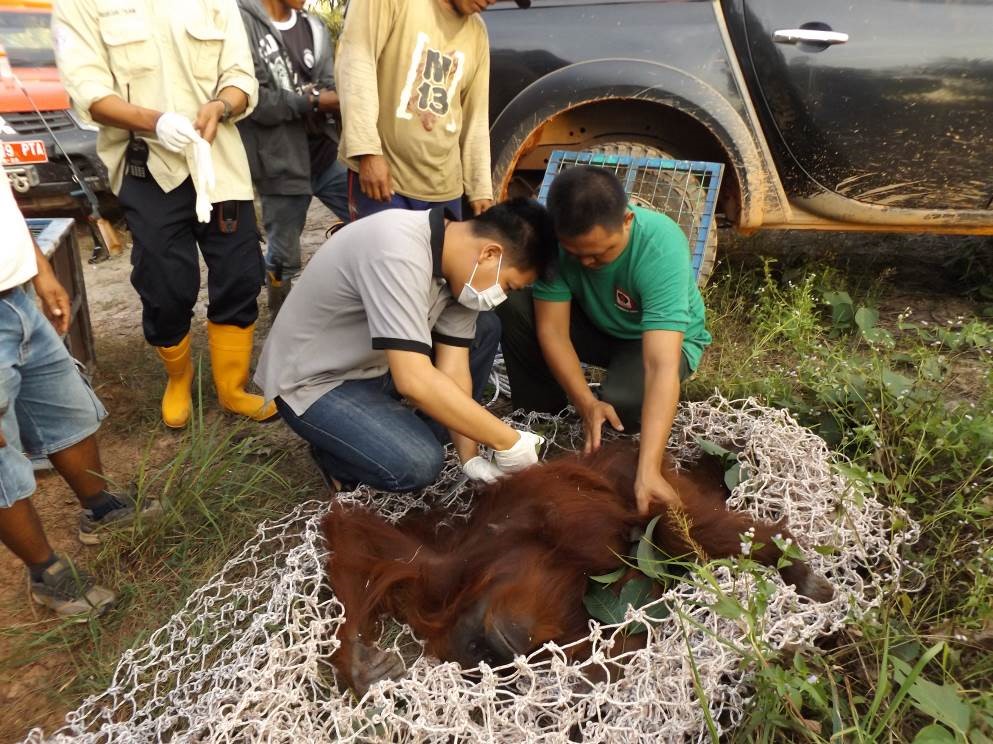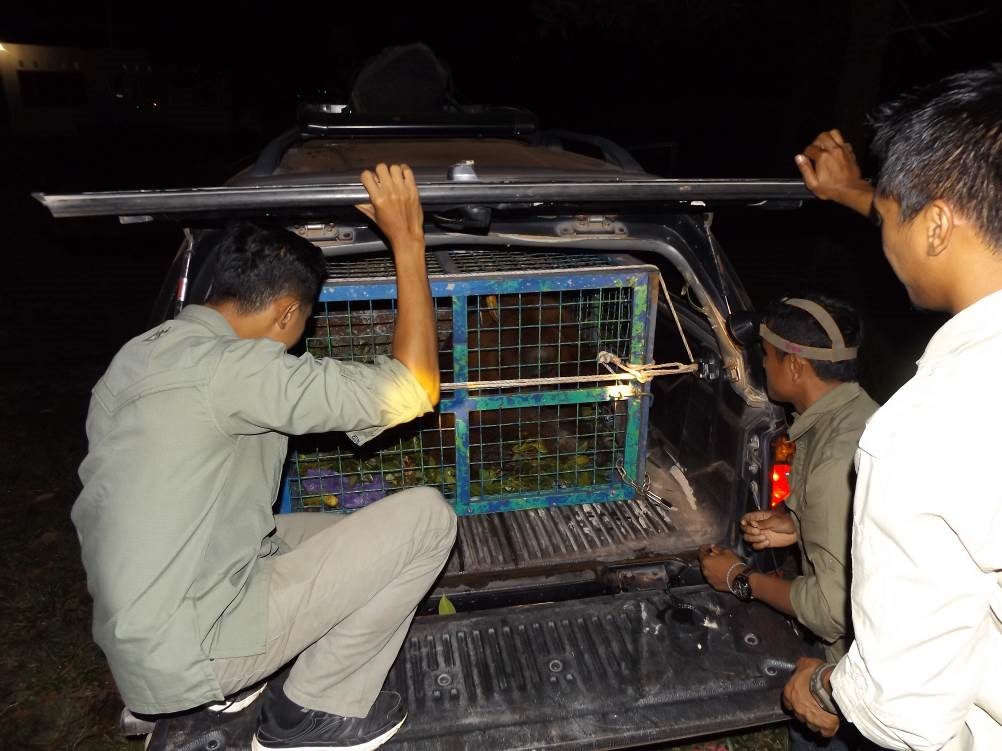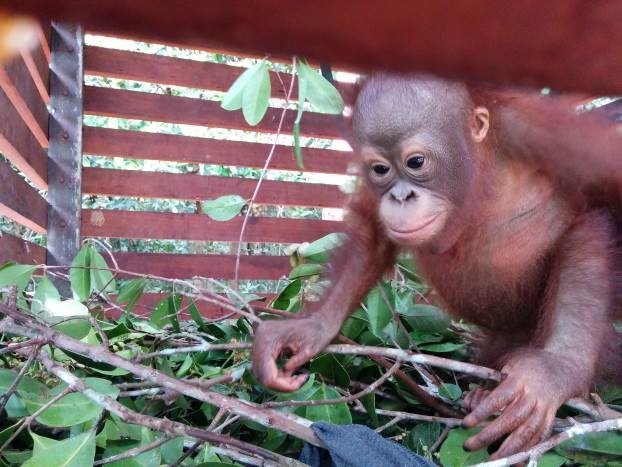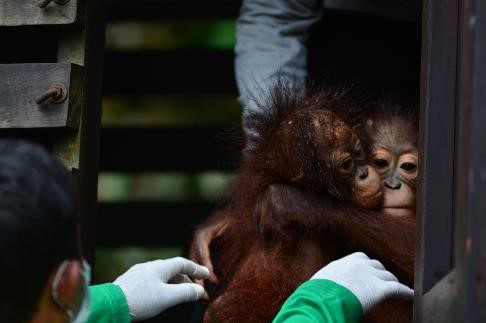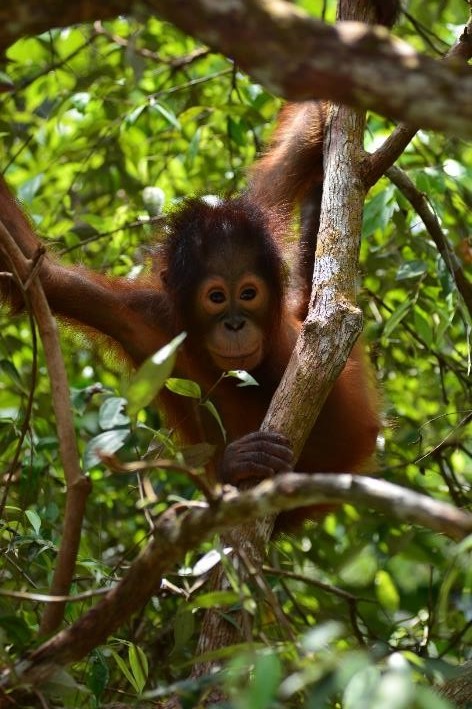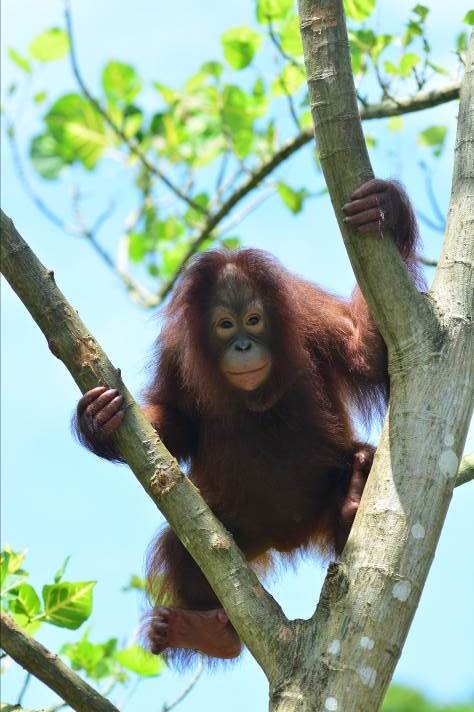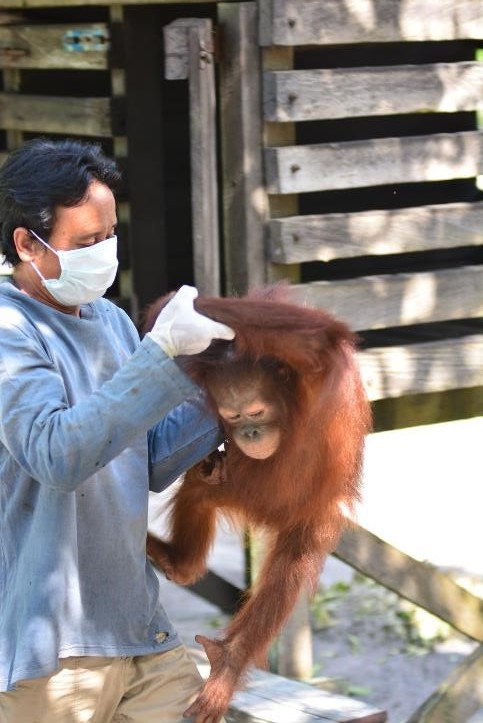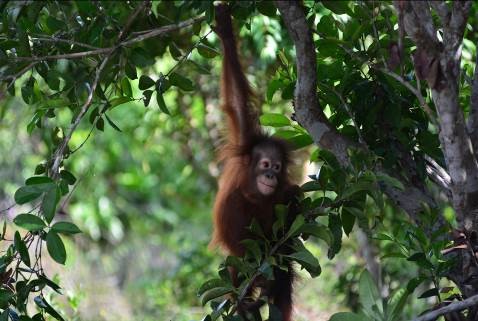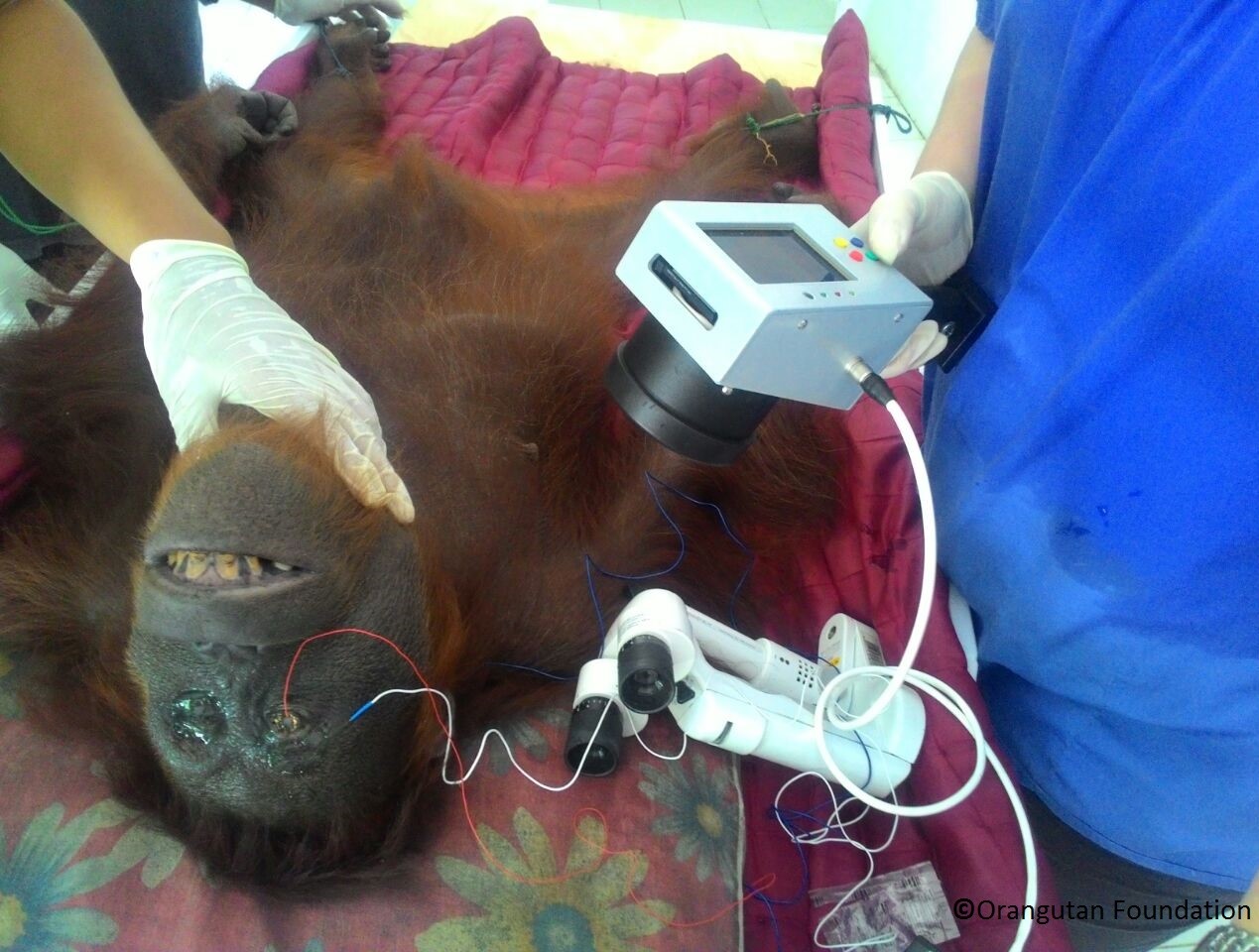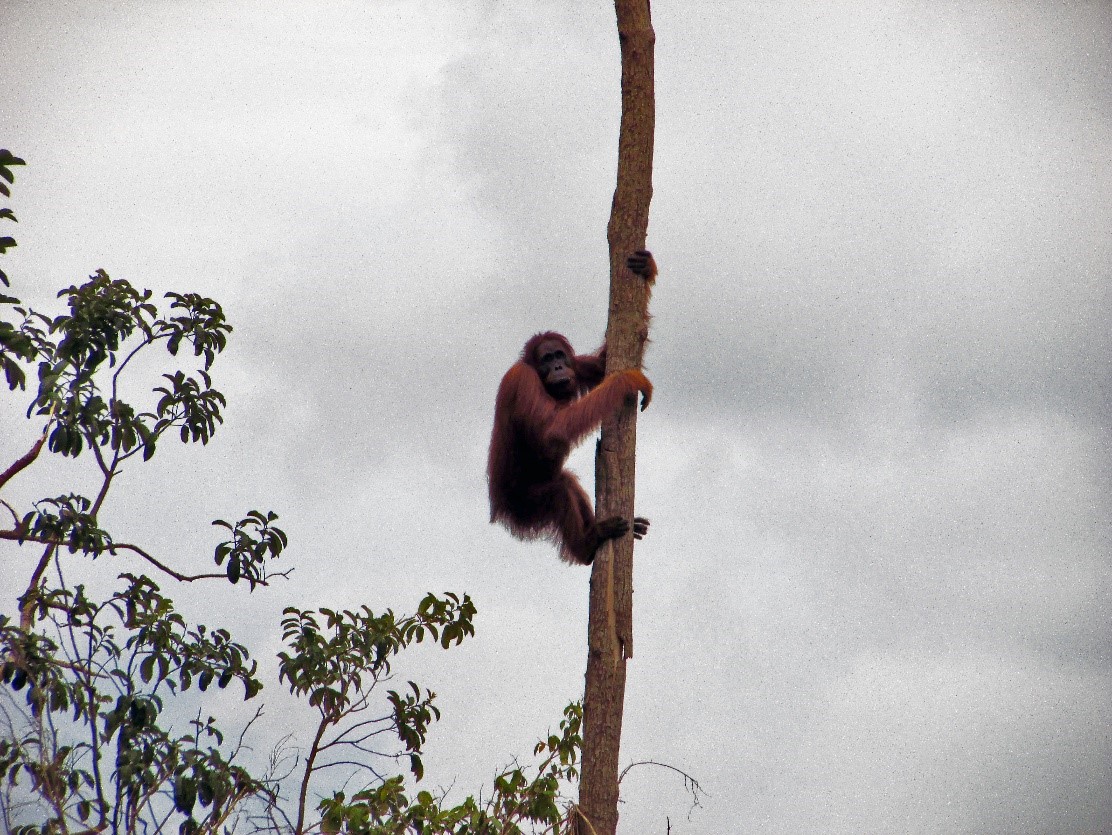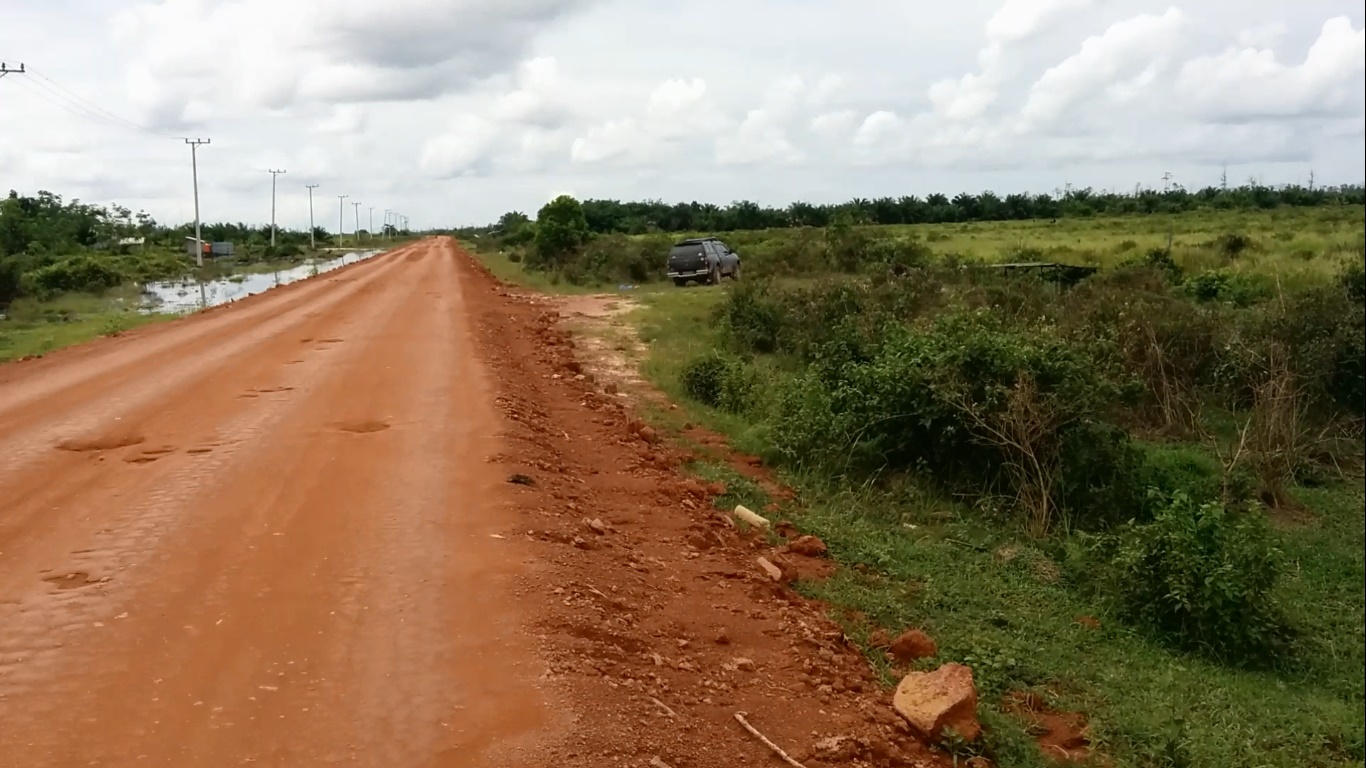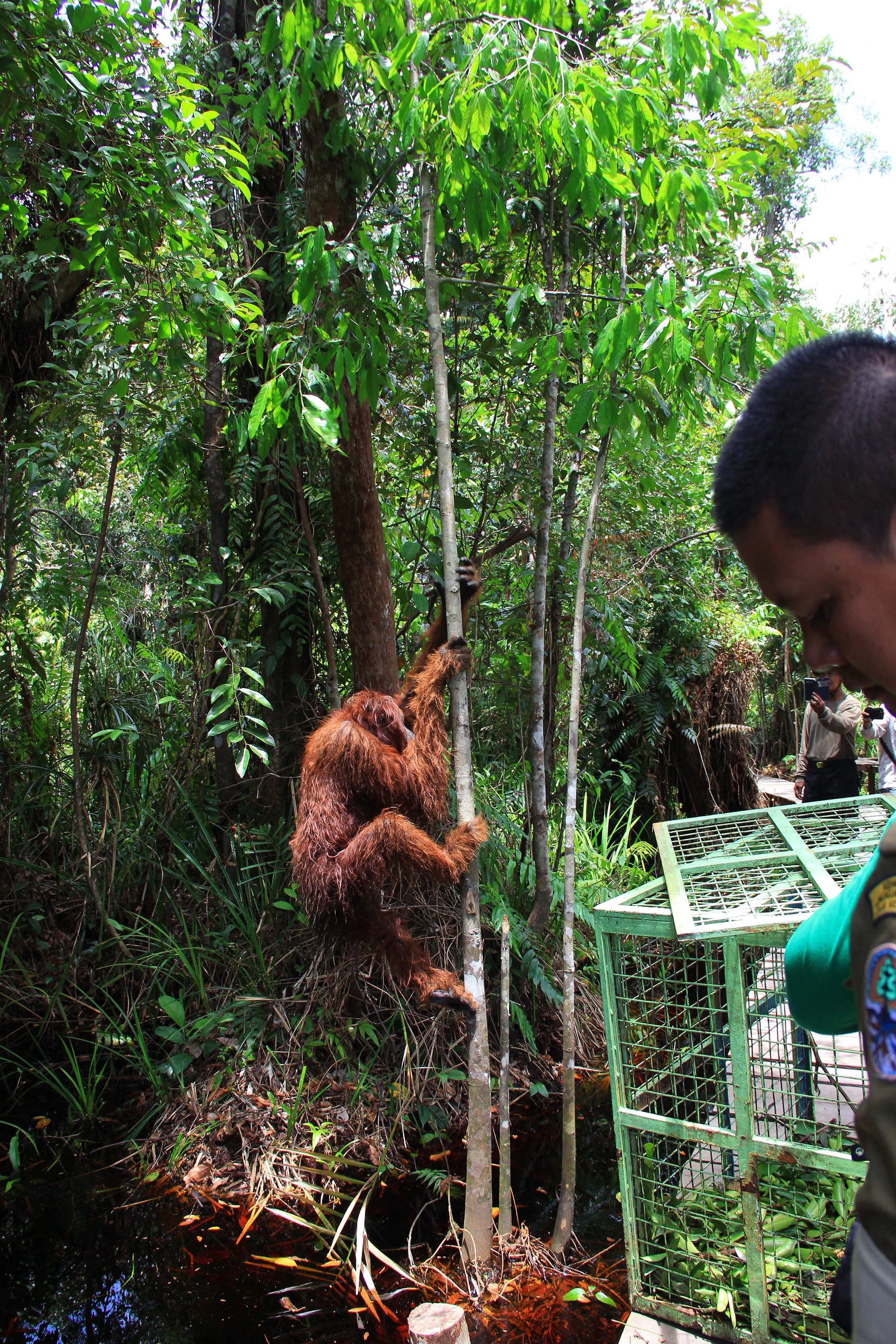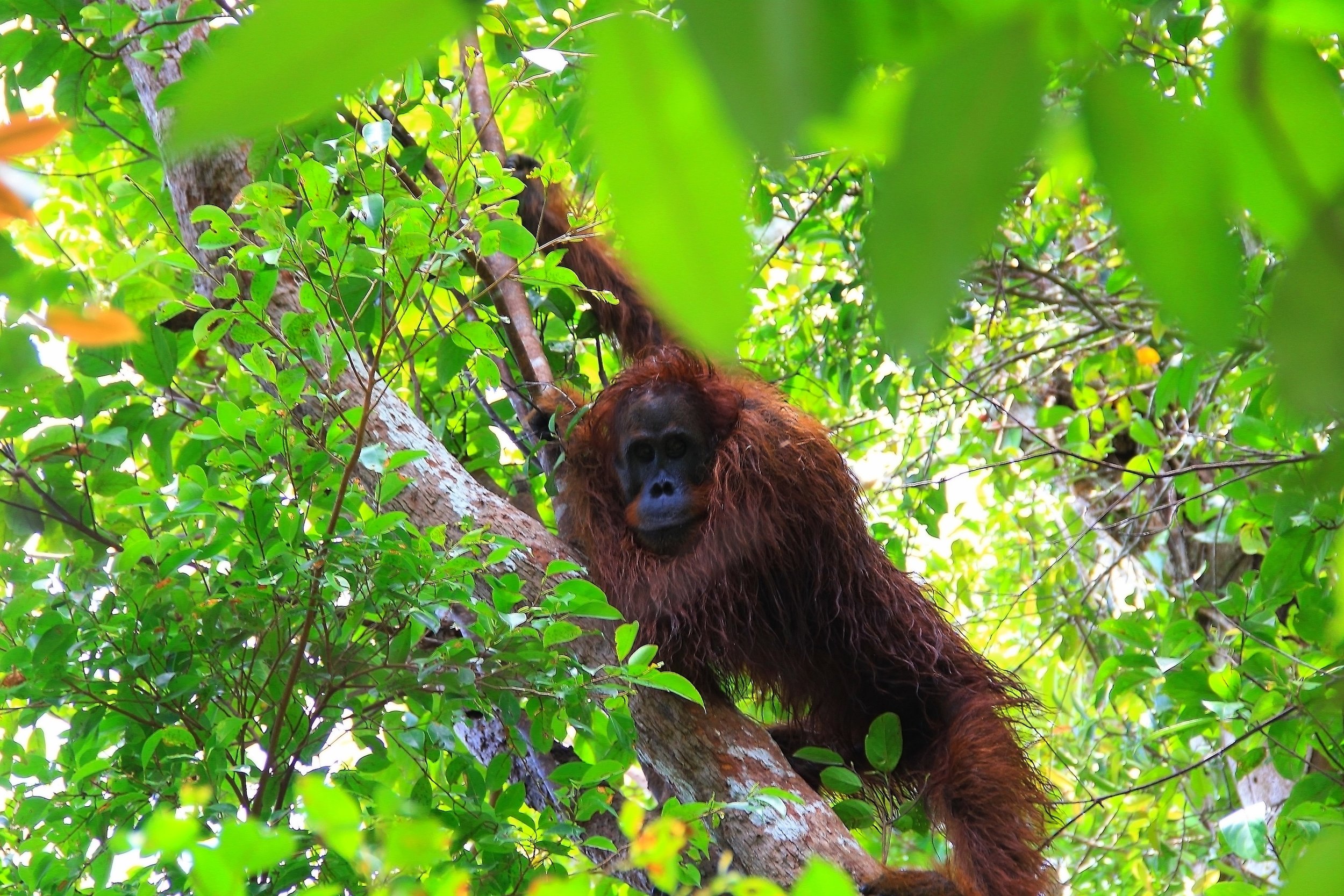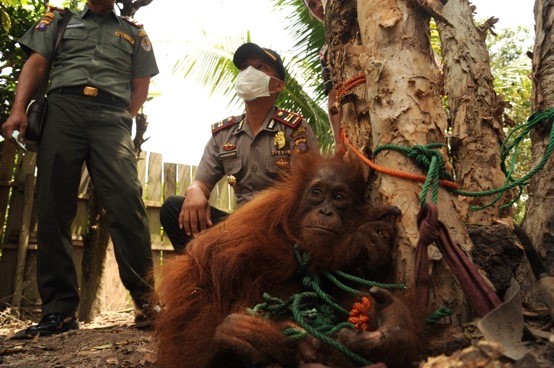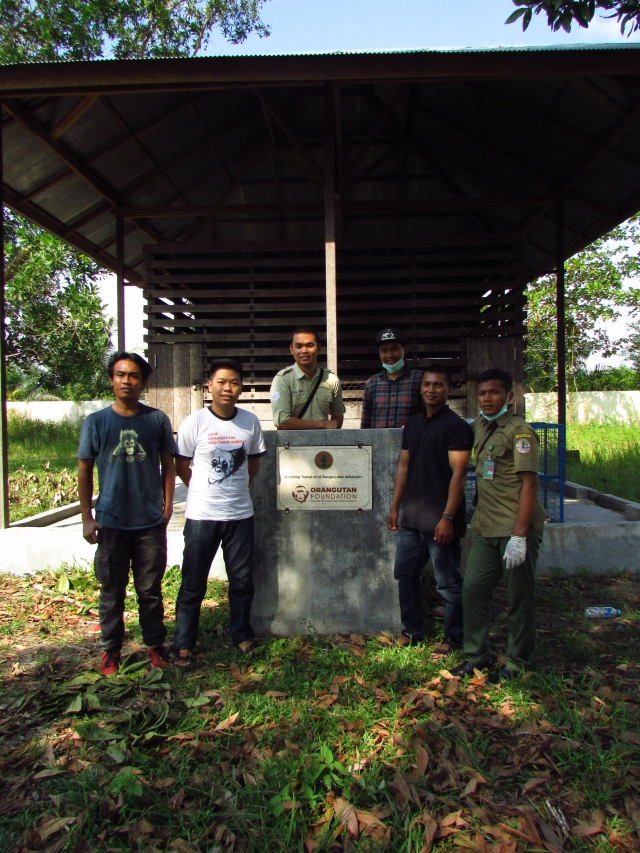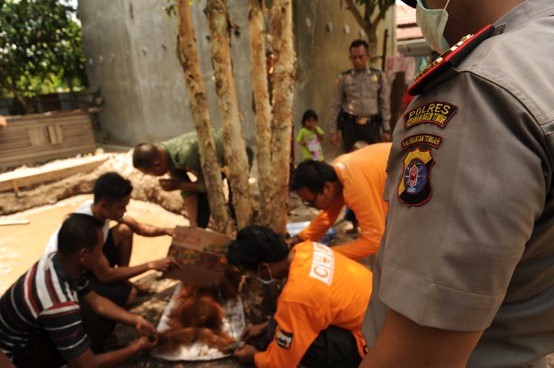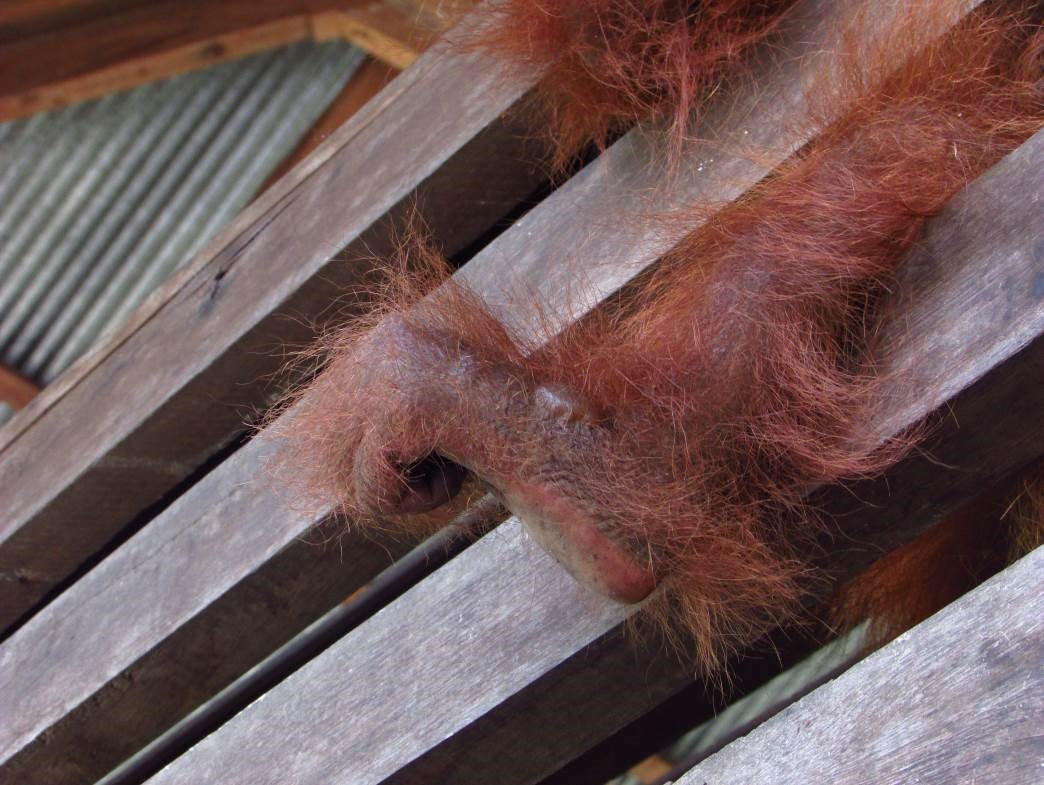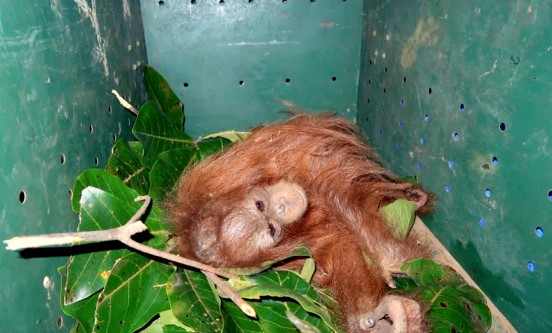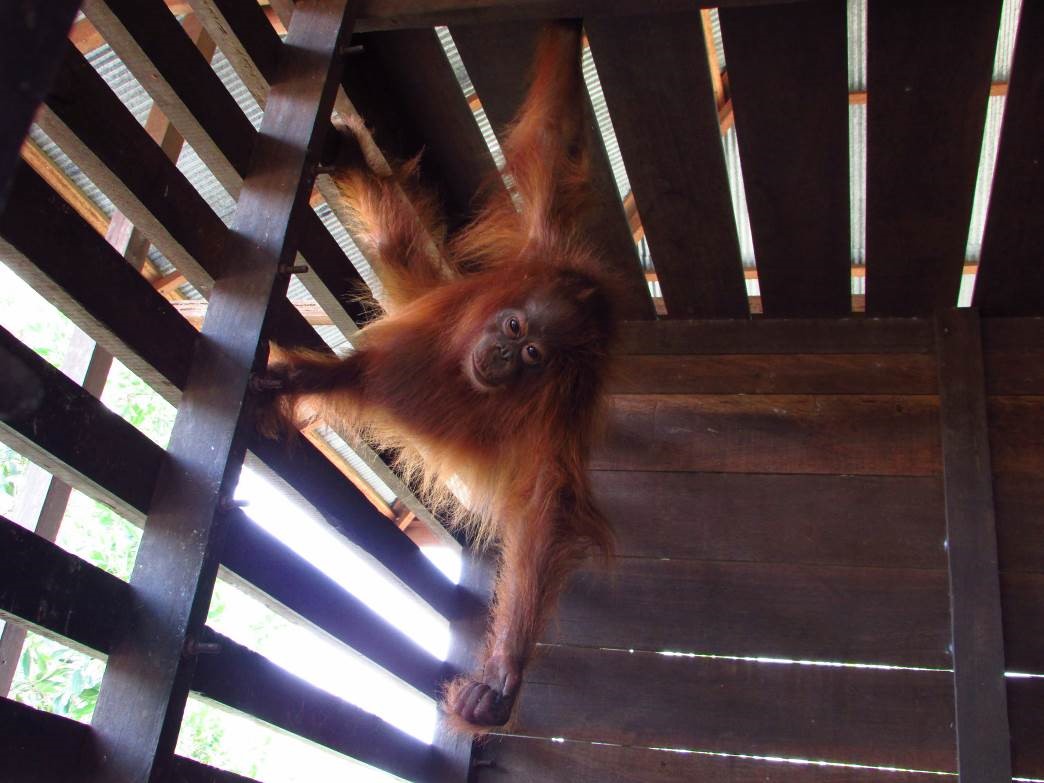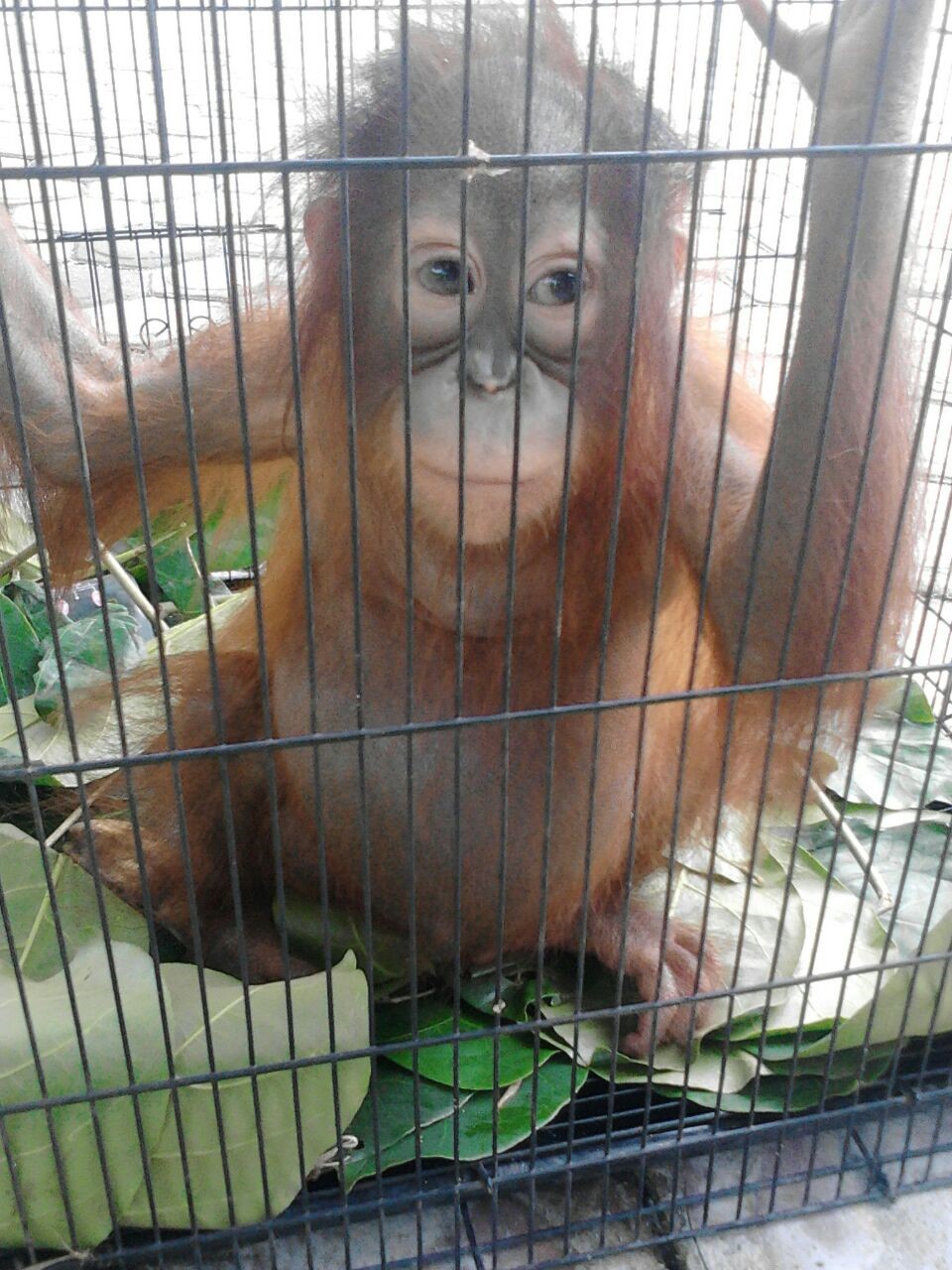As 2016 comes to an end, we have received news of yet another orangutan rescued from an oil-palm plantation - read our vet's blogpost below. Please support our vital work protecting orangutans and their globally important habitat - donate here Yesterday we attended a meeting with BKSDA (Indonesian Nature Conservation Agency). Whilst we were there Pak Agung, the head officer, received a call from an oil-palm plantation, in the Sampit area, to rescue an orangutan. The Orangutan Foundation's rescue team immediately jumped into action to respond to the rescue call.
After a 4 hour journey we arrived at the location and were immediately met by the authorities from the plantation office, who directed us to the orangutan. We found the orangutan in a tree. We used a tranquilliser gun and once anaesthetised, the orangutan was identified as female, around 16 years old and her weight is around 30 Kg.
The condition of her body looks thin, maybe because she lacks food. After examining, I give de-worming drug and vitamins to help restore her health. As the orangutan came round after the anaesthetic, her behaviour became very aggressive and she was quite stressed.
She will be translocated to the protected Lamandau Wildlife Reserve in the next few days, where she will be released back into the wild as soon as possible.
Thank you,
Steven - Orangutan Foundation Vet


